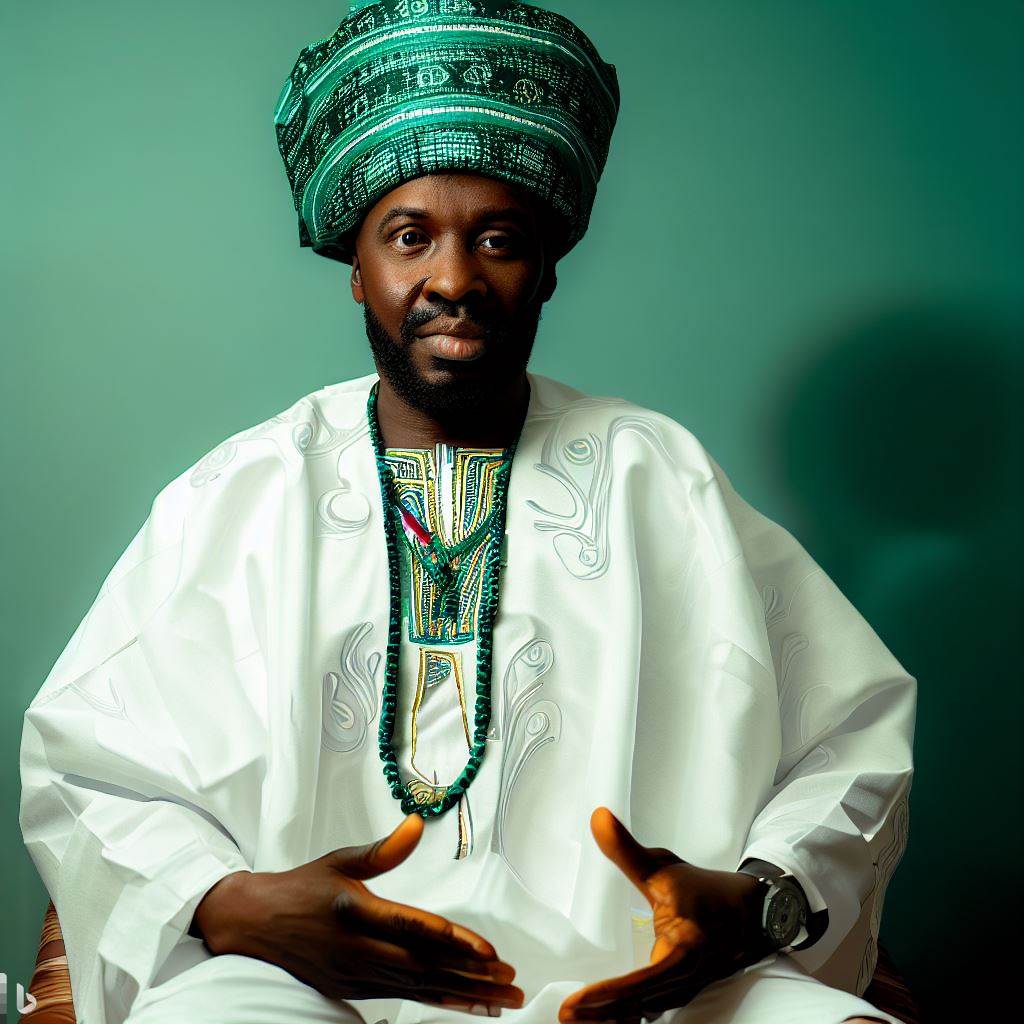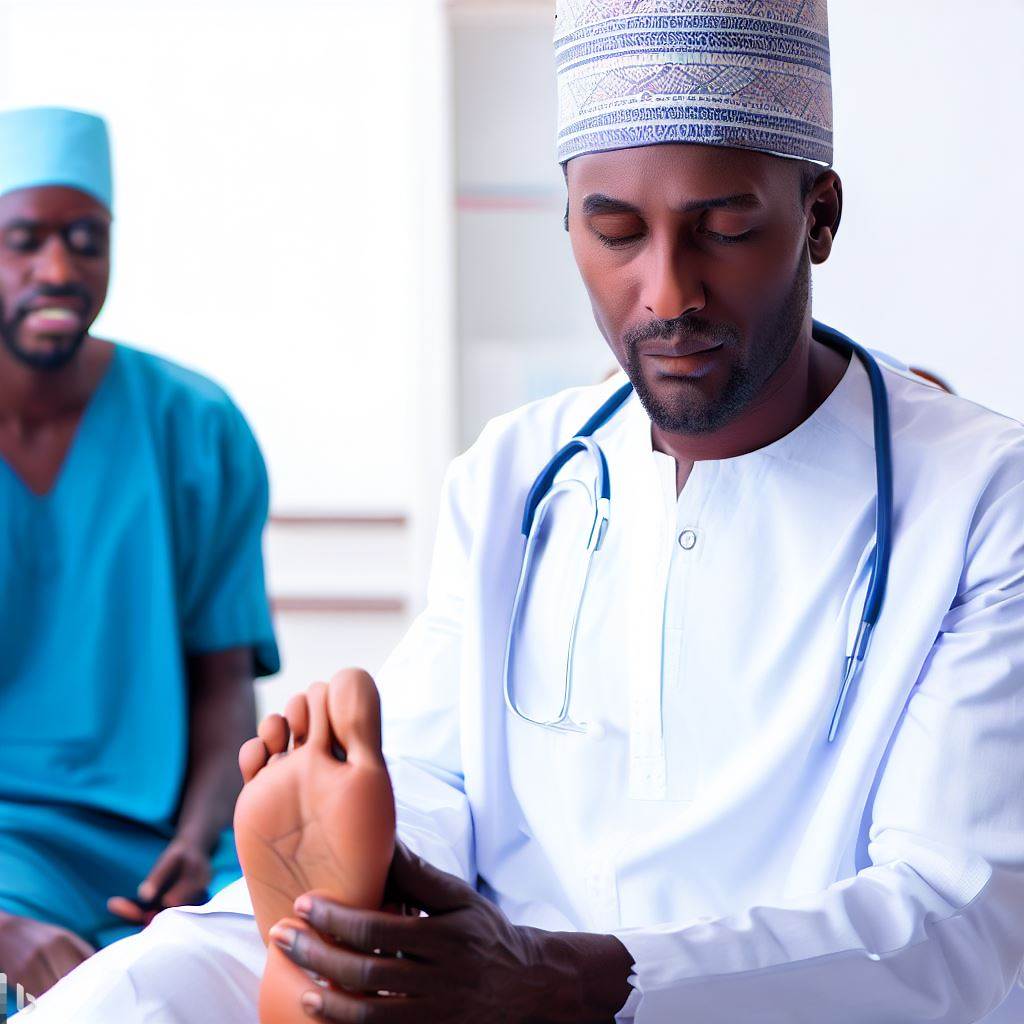Introduction
Counseling plays a crucial role in society, aiding individuals in overcoming challenges and achieving personal growth.
Background information on counseling in Nigeria
Counseling emerged in Nigeria during the colonial era.
Thesis statement
The counseling landscape in Nigeria has evolved significantly over the years, with various milestones marking its transformation.
Pre-Independence Era
- A. Overview of counseling practices before Nigeria gained independence
- B. Description of traditional counseling methods and cultural influences
- C. Challenges faced by counselors during this time
Overview of counseling practices before Nigeria gained independence
In the pre-independence era, counseling in Nigeria was in its early stages, with limited professional structures.
It primarily relied on informal support systems as there were no formal counseling institutions or training programs available.
Description of traditional counseling methods and cultural influences
Traditional counseling, deeply rooted in Nigerian culture, played a significant role during this period.
It involved the use of traditional healers, religious leaders, and community elders as counselors.
These traditional counselors were respected individuals within their communities, possessing in-depth knowledge of their cultural practices.
They used various techniques such as storytelling, rituals, and advice-giving to help individuals navigate life challenges.
Cultural influences heavily shaped counseling practices, as Nigerians firmly believed in the interconnectedness of spiritual, mental, and physical well-being.
The community-oriented nature of counseling promoted social cohesion and harmony.
Despite the benefits of traditional counseling, it had its limitations.
Counselors often had inadequate training in psychological techniques and relied heavily on personal experiences and intuition.
Challenges faced by counselors during this time
The challenges faced by counselors during this time were multifaceted.
Limited resources, including a lack of counseling facilities and specialized training, hindered the development of the counseling profession.
Additionally, the absence of standardized ethical guidelines posed challenges in maintaining professionalism and ensuring client confidentiality.
Stigmatization surrounding mental health issues further complicated counseling efforts, as individuals were reluctant to seek help due to fear of social ostracism.
The lack of awareness among the general public about the importance of mental health and the effectiveness of counseling also presented obstacles.
Furthermore, cultural beliefs and practices often clashed with the concepts introduced by Western counseling theories.
This cultural clash impeded the integration of Western counseling practices into the Nigerian context.
The pre-independence era in Nigeria witnessed a nascent stage of counseling development.
Traditional counseling methods, influenced by cultural practices, played a significant role in providing support to individuals.
However, the challenges faced by counselors, including limited resources, stigmatization, and cultural clashes, hindered the advancement of the profession.
It was only with the country’s independence that opportunities for the growth and development of counseling in Nigeria would emerge.
Read: Teaching Under Stress: The Experience of a Nigerian Teacher
Early Post-Independence Era (1960s-1970s)
The emergence of professional counseling organizations
- Professional counseling organizations began to emerge in Nigeria.
- These organizations aimed to provide support and guidance to counselors in the country.
- They focused on establishing standards and ethics for the counseling profession.
- Efforts were made to promote collaboration and knowledge sharing among counseling professionals.
- These organizations played a crucial role in the development and growth of counseling in Nigeria.
Introduction of counseling education programs in universities
- Universities in Nigeria started offering counseling education programs.
- These programs aimed to train individuals to become professional counselors.
- Curriculum included theoretical foundations, counseling techniques, and practical experience.
- These programs played a vital role in shaping the future of counseling in Nigeria.
- They provided a platform for counselors to acquire the necessary knowledge and skills.
Focus on providing career guidance and vocational counseling services
- Counseling in this era primarily focused on career guidance and vocational counseling.
- There was a growing recognition of the importance of helping individuals with career decisions.
- Counselors worked with students and job seekers to explore their career paths.
- They provided information about different professions and guidance on pursuing specific careers.
- Vocational counseling aimed to match individuals’ skills and interests with suitable job opportunities.
During the early post-independence era in Nigeria, significant developments occurred in the field of counseling.
Professional counseling organizations emerged to support and guide counselors in the country.
These organizations aimed to establish standards and ethics, promote collaboration, and share knowledge among professionals.
Their contributions were instrumental in shaping the growth of counseling in Nigeria.
Additionally, universities in Nigeria began introducing counseling education programs during this era.
These programs played a crucial role in training individuals to become professional counselors.
The curriculum covered theoretical bases, taught counseling methods, and provided hands-on practice, arming students to be adept counselors.
One of the primary focuses of counseling during this period was on providing career guidance and vocational counseling services.
There was an increasing recognition of the importance of assisting individuals with their career decisions.
Counselors worked with students and job seekers to explore their career paths, providing information about different professions and guidance on pursuing specific careers.
Vocational counseling, another significant aspect of counseling during this era, aimed to match individuals’ skills and interests with suitable job opportunities.
Counselors played a vital role in assisting individuals in identifying their strengths and aligning them with potential career paths.
This focus on career guidance and vocational counseling paved the way for future developments in counseling in Nigeria.
Read:Nigeria’s Electronic Engineering: Skills & Requirements
1980s-1990s
Diversification of Counseling Services
During this period, counseling services in Nigeria witnessed a significant diversification. Various specialized counseling services emerged to cater to the diverse needs of the population.
Introduction of School Counseling Programs
The 1980s-1990s saw the introduction of dedicated school counseling programs across Nigeria. Schools recognized the importance of counseling in student development and mental well-being.
Increased Awareness and Recognition of Mental Health Counseling
In this era, there was a notable increase in awareness and recognition of mental health counseling in Nigeria.
The society began acknowledging the significance of addressing mental health issues through counseling.
Influence of International Counseling Models
The internationalization of counseling models played a crucial role in shaping counseling practices in Nigeria.
Nigerian counselors began adopting and integrating effective strategies from successful international counseling models.
During the 1980s-1990s, counseling services in Nigeria experienced substantial growth and development.
The country witnessed a significant diversification in counseling services, offering specialized assistance in various areas.
This expansion allowed individuals to receive targeted support based on their unique needs.
One significant development during this period was the introduction of school counseling programs.
Recognizing the importance of supporting students’ overall development, Nigerian schools began to provide dedicated counseling services.
The 1980s-1990s also witnessed an increase in awareness and recognition of mental health counseling.
Nigerian society began to understand the crucial role played by mental health counseling in addressing psychological and emotional challenges.
This shift in perspective led to an increased demand for mental health counseling services across the country.
Another essential factor that influenced counseling in Nigeria during this time was the adoption of international counseling models.
Nigerian counselors recognized the value of incorporating successful strategies and techniques from established counseling models worldwide.
These models provided a framework for effective counseling practices, enhancing the quality of services offered to clients.
Overall, the 1980s-1990s were significant years for counseling in Nigeria.
The diversification of counseling services allowed for a more targeted approach to meet the specific needs of individuals.
The introduction of school counseling programs recognized the importance of holistic support for students.
This period laid the foundation for the further growth and evolution of counseling in Nigeria.
The developments experienced during the 1980s-1990s paved the way for future advancements in counseling practices.
As Nigeria continues to develop its counseling systems, it is essential to remember the progress made during this crucial period.
Read: Primary Education in Nigeria: The Role of Teachers

2000s-Present
Adoption of modern counseling techniques and evidence-based practices
- The counseling profession in Nigeria witnessed a significant shift towards the adoption of modern counseling techniques in the 2000s.
- Counseling practitioners began to embrace evidence-based practices, which are interventions backed by scientific research.
- This shift was driven by the recognition that traditional counseling methods needed to be updated to effectively address the diverse challenges faced by individuals.
- Training programs and workshops were organized to educate counselors on these new techniques and practices.
- The adoption of modern counseling techniques has resulted in more effective counseling outcomes and improved client well-being.
Integration of technology in counseling services
- The rapid advancement of technology in the 2000s paved the way for its integration into counseling services in Nigeria.
- Counselors started utilizing various technology tools such as online platforms, mobile applications, and virtual reality.
- These advancements have revolutionized the way counseling is delivered, making it more accessible and convenient for clients.
- Online counseling sessions have become popular, allowing individuals to receive counseling services from the comfort of their homes.
- Technology integration has also facilitated the use of assessment tools and data analysis to tailor counseling interventions to individual needs.
Expansion of counseling services to underserved communities
- Efforts were made during this period to expand counseling services to underserved communities across Nigeria.
- Recognizing the importance of mental health in all populations, campaigns were held to increase awareness about counseling services.
- Mobile counseling units were introduced to reach individuals residing in remote and inaccessible areas.
- Collaborations with non-governmental organizations and community leaders were established to provide counseling support to marginalized groups.
- The expansion of counseling services to underserved communities has helped bridge the gap in mental health care accessibility.
Implementation of counseling standards and regulations
- To ensure the quality and professionalism of counseling services, Nigeria implemented counseling standards and regulations.
- Professional counseling bodies, such as the Nigerian Counseling Association, played a crucial role in developing these standards.
- These regulations emphasized the ethical conduct, qualifications, and continuous professional development of counselors.
- By implementing these standards, Nigeria aimed to protect the welfare of individuals seeking counseling services and maintain the integrity of the counseling profession.
- Compliance with counseling standards and regulations has strengthened the practice of counseling in Nigeria.
The evolution of counseling in Nigeria during the 2000s to the present has been marked by the adoption of modern techniques, integration of technology, expansion of services to underserved communities, and the implementation of standards and regulations.
These developments have resulted in improved counseling outcomes and increased accessibility to mental health care for individuals across Nigeria.
Read: Insights into Nigeria’s Electronic Engineering Job Market
Current Challenges and Future Outlook
Limited funding and resources for counseling services
- Insufficient financial support hampers the growth and accessibility of counseling in Nigeria.
- Lack of resources like trained professionals, facilities, and technology hinder effective counseling provision.
- 3. Government and private sector collaboration needed to increase funding and resources for counseling services.
Stigma associated with seeking counseling in Nigerian society
1. Cultural beliefs and misconceptions contribute to the stigma surrounding counseling.
2. Many Nigerians perceive seeking counseling as a sign of weakness or instability.
3. Public awareness campaigns and education can address the stigma and promote the benefits of counseling.
Importance of continued professional development for counselors
1. Ongoing training and education are vital for counselors to maintain competence and keep up with evolving practices.
2. Continuous learning ensures counselors are equipped to handle diverse client needs and changing societal dynamics.
3. Professional organizations should prioritize providing opportunities for counselors’ professional development.
Potential for further advancements and improvements in counseling
1. Collaborative research and innovation can enhance counseling techniques and interventions.
2. Integrating technology into counseling services can improve accessibility and reach underserved populations.
3. Government support and policy changes can create an enabling environment for counseling advancements.
Counseling in Nigeria faces several challenges, including limited funding, stigma, and the need for continued professional development.
However, the future holds promise for the field, with potential for advancements and improvements.
By addressing these challenges and leveraging resources, counseling can play an even more significant role in promoting mental health and well-being in Nigerian society.
Delve into the Subject: Working Conditions for Radiation Therapists in Nigeria
Conclusion
The timeline of counseling in Nigeria has shown significant growth and development.
From its humble beginnings in the pre-colonial era to its current state in the modern age, counseling has evolved to meet the changing needs of the Nigerian society.
Initially, counseling was mainly focused on spiritual and religious guidance.
However, with the influence of Western education, counseling began to incorporate psychological principles and techniques.
This shift allowed for a more holistic and comprehensive approach to counseling, addressing not only spiritual needs but also mental and emotional well-being.
In recent years, counseling in Nigeria has become increasingly important in the face of a rapidly changing society.
Globalization, urbanization, and other socio-cultural factors have led to various challenges such as high levels of stress, mental health issues, and relationship problems.
Counseling has emerged as a vital tool in helping individuals, families, and communities navigate these complexities and achieve overall well-being.
Looking ahead, the future of counseling in Nigeria is promising.
As the demand for mental health support continues to grow, the counseling profession is expected to further expand in scope and reach.
It is crucial for counselors to adapt and be equipped with the necessary skills to effectively address the evolving needs of the Nigerian population.




